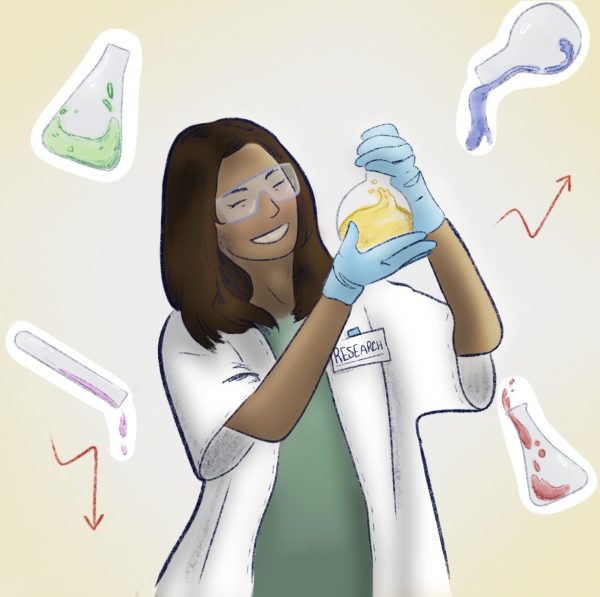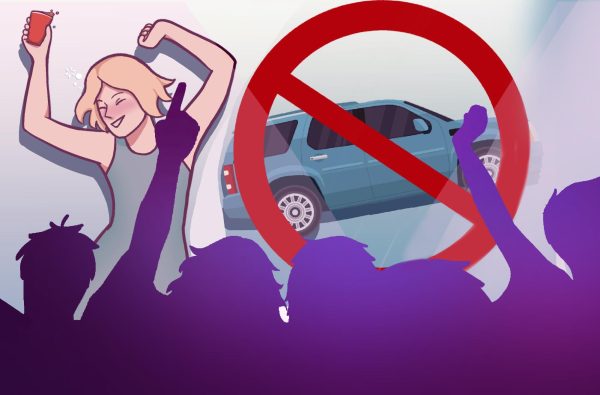Broken up, not broken
February 27, 2014
I remember the first time my mother said the words, “Sometimes love isn’t enough.”
Five years after my parent’s split, my mother attempted to explain their breakup as best she could, but as a 10-year-old, my dreams had just been crushed.
Walt Disney hadn’t prepared me for this.
Like any ‘90s kid worth their salt, I grew up assuming I would fall in love, get married, and live the ‘happily ever after’ plan that all princesses were destined for. I wondered why my mother should be any different.
It wasn’t until many years later that I realized my dad was culpable in the ending of their marriage. After all, every Disney love story requires a prince charming figure. Unfortunately, my father had been anything but. My mother walked away from man she loved and toward the future she deserved.
In truth, my father never grew out of his bad habits. My parents fought constantly, which led to their demise as a couple. It wasn’t until my most recent breakup that I began to comprehend the difficult truth my mother revealed to me at age ten; sometimes, love really isn’t enough to make a relationship work.
Call me cynical, but I believe that we overemphasize love’s role in the success of romantic relationships.
Obviously, love should be the foundation of your relationship and as with any sound structure, a solid foundation is crucial. However, it’s important to recognize that the foundation does not make up the entirety of a building.
In relationships, we often underestimate factors such as friendship, compatibility, trust, values, acceptance, respect, open communication, and future vision. We trust that love will account for any shortcomings in these areas, but in reality, it doesn’t. Love does not conquer all.
Naturally, as a newly divorced mother, my mom didn’t have the luxury of lying in bed all day with Ben & Jerry’s like I do. Amazingly, between the stress of working full time and raising three children, I never saw her lose her cool. Not once.
Now that I am newly single, I can safely say that this emotional willpower is not hereditary. That is, unless the gene develops over time. But currently, my debit card activity alternates between ice cream and Redbox DVDs.
In my own emotional turmoil, I began to wonder; if I could be this broken up over a college relationship, how did she end a 15-year marriage with such grace?
In the end, how does anyone really ‘deal with’ the aftermath of a relationship?
Psychologists relate the difficulty of getting over a breakup to two factors: gender and which role each person plays in the breakup. Contrary to popular belief, women get over breakups more easily than men do.
Being that women are more in tune with their feelings, breakups don’t seem to come out of nowhere like they do for men. Psychologist and columnist Joyce Brothers, Ph.D., explains that women seek out more social outlets.
“Women have more people to talk to, their hairdresser, aunt, even a taxi driver,” Brothers said in a column on WebMD.
Statistically speaking, men have a much harder time breaking an attachment than women do. Men are actually more likely to commit suicide after the end of a relationship if it didn’t end on their terms, according to Brothers.
With that in mind, psychologists generally agree that being the dumper versus the dumpee makes getting over the relationship considerably easier. Sadly, the dumpee often questions their self-worth and believes there is something ‘wrong with them.’ Predictably, relationships that end mutually require the least emotional legwork.
Although the grieving process is different for everyone, Brothers urges people to treat breakups with the phasic model used for death. If you think about it, a breakup serves as the death of your relationship, so feel free to treat it as such. You can experience denial, anger, bargaining, depression, and acceptance in whichever order you so choose.
In my constant effort to avoid being philosophically repugnant, I want to offer practical tips to surviving the months post-split. Pinterest can fill your emotional void with uplifting quotes, whereas my focus is action.
Throughout your healing process I want you to listen to music, journal, talk to friends, go out, and physically bond with others.
Music inspires creative thought; you might see your situation or life in general differently in the context of music lyrics. Develop a soundtrack for your months post-split. Write to express your thoughts. Getting them out on paper allows you to reread your work and constantly recommit to your decision or come to terms with your ex’s.
Talking to other people is therapeutic. Sigmund Freud coined the term “catharsis” to describe the healing that patients experienced when they vocalized their problems. It works. Do it.
Get out of your house. Go to movies, parties or on walks with friends. Don’t put your physical life at a standstill or your emotional life will mirror that.
Finally, I want you to bond with others physically. Let me clarify: this does not mean a rebound one-night-stand. Hug your friends and touch people more than you normally would. Positive physical interaction has been scientifically proven to boost your mood.
In the end, nothing is definite. There are no rules that can predict how long your grieving period will be, although I have friends that swear that it is exactly 1000 beers.
As for my healing process, I borrow lyrics from The Beatles. Right now, “I get by with a little help from my friends.”





















